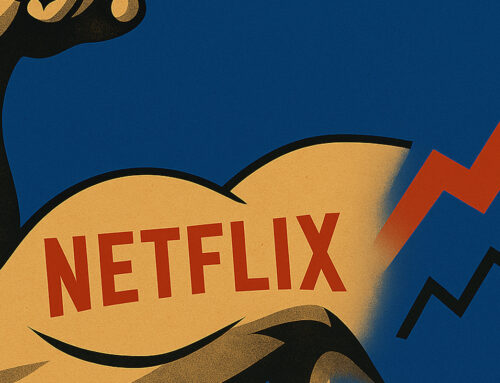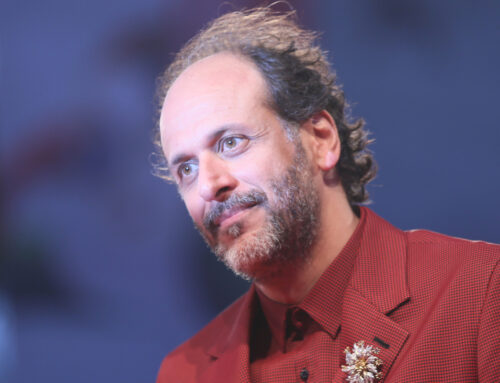Is The Podcast Golden Age Over?
No, but the business is adjusting itself.
Is the Podcast golden age over? Layoffs, budget cuts, and scuttled deals challenge what appeared to be a long-booming industry. Journalist Reggie Ugwu on The New York Times analyses the matter starting from the story of celebrity-backed media company Religion of Sports — founded by Tom Brady, Michael Strahan, and Gotham Chopra that, in 2020, created a podcast division that hired more than a dozen audio producers and developed a broad slate of shows ranging from talk programs to scripted drama. Not even three years later company’s podcast employees had been laid off, and the audio division shut. “The demise of Religion of Sports’ audio ambitions is the latest sign of frost settling over the once sizzling podcast industry.” writes Ugwu. “Spotify has spent over $1 billion in recent years acquiring production companies and signing exclusive deals with celebrities like Kim Kardashian. But in January, it reduced podcast staff for the third time in five months, and the company’s chief content officer, Dawn Ostroff, resigned. Two other prominent podcast publishers, Vox Media, and Pushkin Industries, also announced layoffs last month. And Amazon, SiriusXM, NPR, and Spotify have all curbed podcast budgets in the last year.”
“The dumb money era is over,” said Eric Nuzum, a podcast strategist and co-founder of the independent studio Magnificent Noise. “People had been throwing money at things to see if they could get in and scale up an audience quickly, but now everyone’s being more conservative.”
Why did the gold rush end in a small stream?
Strong growth in Podcast listening and aggressive maneuvering from deep-pocketed companies helped drive the original expansion. Since 2014 the percentage of Americans 12 and over who have listened to a podcast has jumped to 62 percent from 30 percent, for a total of 177 million, according to a report released by the analytics firm Edison Research. Payouts for content publishers soared. Individual podcasts with popular hosts exploded. The pandemic helped. In addition to traditional advertising, the platforms hoped to recoup their investments through strategies including premium subscription offerings and intellectual property deals with Hollywood. But the audience proved itself reluctant to sign up for paid subscriptions to the content they’re accustomed to getting for free, and “The first thing marketers do when they anticipate a downturn is cut their budgets,” said Brad Adgate, an independent media consultant, and that’s what is happening.
Some podcast analysts argued that cutbacks are part of the natural cycle of a new medium’s evolution.”Less direct investment in content isn’t necessarily a sign of trouble,” said Lauren Jarvis, the former head of content partnerships at Spotify. “The business will figure itself out,” concludes Eric Nuzum.
Source: New York Times
Share:
No, but the business is adjusting itself.
Is the Podcast golden age over? Layoffs, budget cuts, and scuttled deals challenge what appeared to be a long-booming industry. Journalist Reggie Ugwu on The New York Times analyses the matter starting from the story of celebrity-backed media company Religion of Sports — founded by Tom Brady, Michael Strahan, and Gotham Chopra that, in 2020, created a podcast division that hired more than a dozen audio producers and developed a broad slate of shows ranging from talk programs to scripted drama. Not even three years later company’s podcast employees had been laid off, and the audio division shut. “The demise of Religion of Sports’ audio ambitions is the latest sign of frost settling over the once sizzling podcast industry.” writes Ugwu. “Spotify has spent over $1 billion in recent years acquiring production companies and signing exclusive deals with celebrities like Kim Kardashian. But in January, it reduced podcast staff for the third time in five months, and the company’s chief content officer, Dawn Ostroff, resigned. Two other prominent podcast publishers, Vox Media, and Pushkin Industries, also announced layoffs last month. And Amazon, SiriusXM, NPR, and Spotify have all curbed podcast budgets in the last year.”
“The dumb money era is over,” said Eric Nuzum, a podcast strategist and co-founder of the independent studio Magnificent Noise. “People had been throwing money at things to see if they could get in and scale up an audience quickly, but now everyone’s being more conservative.”
Why did the gold rush end in a small stream?
Strong growth in Podcast listening and aggressive maneuvering from deep-pocketed companies helped drive the original expansion. Since 2014 the percentage of Americans 12 and over who have listened to a podcast has jumped to 62 percent from 30 percent, for a total of 177 million, according to a report released by the analytics firm Edison Research. Payouts for content publishers soared. Individual podcasts with popular hosts exploded. The pandemic helped. In addition to traditional advertising, the platforms hoped to recoup their investments through strategies including premium subscription offerings and intellectual property deals with Hollywood. But the audience proved itself reluctant to sign up for paid subscriptions to the content they’re accustomed to getting for free, and “The first thing marketers do when they anticipate a downturn is cut their budgets,” said Brad Adgate, an independent media consultant, and that’s what is happening.
Some podcast analysts argued that cutbacks are part of the natural cycle of a new medium’s evolution.”Less direct investment in content isn’t necessarily a sign of trouble,” said Lauren Jarvis, the former head of content partnerships at Spotify. “The business will figure itself out,” concludes Eric Nuzum.
Source: New York Times









